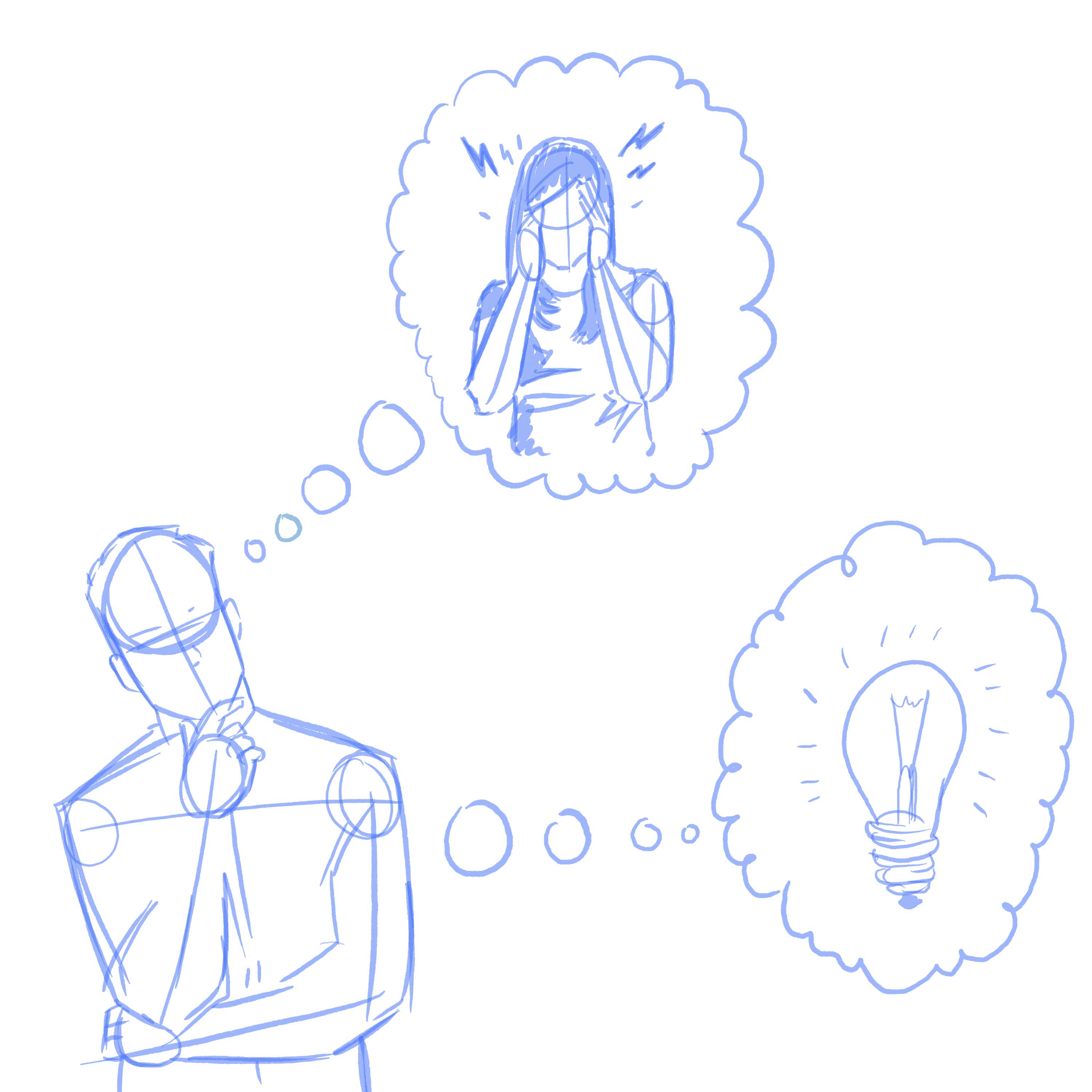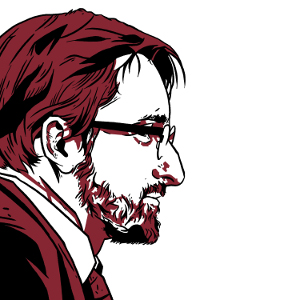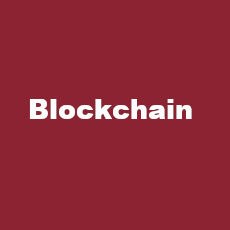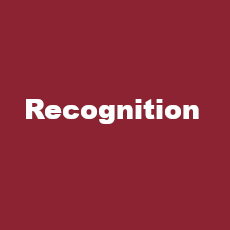Research Despite the myriad research settings and levels of analysis running throughout my research, my work broadly centers around two themes—the social construction of technology & economic markets, and doing business differently. Despite the myriad research settings and levels of analysis running throughout my research, my work broadly centers around two themes—the social construction of technology & economic markets, and doing business differently. |
Social Construction of Technology & Markets As a social constructionist, I view technologies as socio-cognitive systems. This means that social dynamics and psychological dynamics drive the creation, adoption, success and failure of technology in the real world.  My first two articles in this area, published in Technovation and IEEE Transactions on Engineering Management with a co-author (Banerjee & Cole, 2010, 2011), examine the role that audiences play in increasing or decreasing the impact of technologies once revealed to the world. The research builds on the idea that patents go beyond merely delineating legal boundaries of a technological claim; they attract the attention of certain audiences over others, which ultimately influences who builds on the technology in the future. One of my more recent studies (Cole, Haubo Dyhrberg, Foley & Svec, 2022) published in Journal of International Financial Markets, Institutions & Money examines how the security mechanism of Bitcoin wallets (and other UTXO cryptocurrencies) may be skewing the way people interpret the adoption/use of the Bitcoin as well as the cost of transacting.
My first two articles in this area, published in Technovation and IEEE Transactions on Engineering Management with a co-author (Banerjee & Cole, 2010, 2011), examine the role that audiences play in increasing or decreasing the impact of technologies once revealed to the world. The research builds on the idea that patents go beyond merely delineating legal boundaries of a technological claim; they attract the attention of certain audiences over others, which ultimately influences who builds on the technology in the future. One of my more recent studies (Cole, Haubo Dyhrberg, Foley & Svec, 2022) published in Journal of International Financial Markets, Institutions & Money examines how the security mechanism of Bitcoin wallets (and other UTXO cryptocurrencies) may be skewing the way people interpret the adoption/use of the Bitcoin as well as the cost of transacting.
Recognizing that the selection environment for new technology is not a vacuum, I was drawn to how competitive actions might impact that selection process. My largest and most complex study to date was published in Administrative Science Quarterly (Cole & Chandler, 2019) and uses a historical case study analysis of Thomas Edison’s campaign against George Westinghouse during the AC/DC standards wars, which aimed at delegitimizing Westinghouse’s technology for use in homes by legitimizing it for use in the execution of criminals in New York state at the turn of the twentieth century. Another study of mine that examines the selection process looks at which types of distinctiveness earned artists who dabbled in modern art methods between 1905-1916 the opportunity to exhibit their art in salons and galleries throughout Europe; that study is published in the Academy of Management Journal and uses a convolutional neural network to examine artworks (Banerjee, Cole & Ingram, 2023). Given my work to date on the dynamics of breakthrough innovations and the social influences on the impact of those technologies, I decided to explore the social dynamics of the teams that are empowered to create such innovations within firms (Oliver & Cole, 2019). This study (published in Strategic Management Journal) was born from observing a seeming paradox—a firm that managed to achieve product success through skunkworks innovation, but then experienced organizational failure as the skunkworks team members left the firm en masse after the skunkworks was dissolved. Using inductive methods, my co-author and I developed a multi-stage model of identity work in skunkworks that ties the identity work to the key questions that emerge among team members as the skunkworks progresses. We also provide guidance to help managers avoid the organizational pitfalls observed in our study firm. Another publication of mine that focuses on the study of discursive acts in tight-knit groups was my solo-authored publication in the Academy of Management Journal (Cole, 2015). While not in the context of an innovative technology group, the lessons from its unlikely organizational setting—a Japanese martial arts dojo—have implications on cross-cultural innovation teams. This five-year ethnographic study provides evidence that what traditionally has been viewed as exogenously determined—the context of communication—in fact, can be endogenously manipulated as part of discursive activities. This study was nominated as a finalist for both the Gustavson Best Qualitative Paper Award and the Douglas Nigh Award for the Best Interdisciplinary Paper authored by Junior Scholar(s) by the International Management Division of the Academy of Management in 2013. It is also featured in the 2013 Academy of Management Proceedings. Another study (published in Management and Organization Review) that extends my work in high context communication examines moqi (pronounced mò-chee), the communication practice of having perfect understanding between counterparties without saying a word, a taken-for-granted way of communicating in many countries around the world, including China and Japan (Chen & Cole, 2022). The study that immediately followed my dojo study flipped the same script—this time attempting to separate the exogenous from the endogenous via a unique research setting. Prior research finds that it is not just the length of time one has known a counterparty that matters in determining the stability of one’s relationship, but also the length of time between affiliations. Prior to my study (Cole, 2016), however, the act of choosing a partner had never been considered something separable from the time elapsed. This paper provides evidence of the declining benefit of familiarity and that the exogenous nature of opportunities to affiliate is an important boundary condition of established work. My third exploration of endogeneity was published in Technovation (Banerjee & Cole, 2012) and focused on the inevitable decision of tech startups to replace their founding CEO—who often has been involved with the invention of the firm’s core technology—with a more professional manager—who has broader commercialization skills that could help the firm grow into a viable business. I also believe strongly in helping students learn research skills. As one of the four founding faculty of the Global Business Honors Program at the Gabelli School, I guided a group of students through their group thesis, and helped them to publish the paper in a peer-reviewed sociology journal, Society & Animals: Journal of Human-Animal Studies (Badano, Burgermeister, Henne, Murphy, & Cole, 2014). The study exploited the quasi-experimental setting of the Michael Vick dogfighting case, and focused on how animal rights organizations struggled with the fact that they benefitted organizationally (in terms of interest in their mission to protect animals as well as fundraising) from the involvement of such a prominent celebrity athlete having committed animal abuse. I also published joint work with Allen Liao, a doctoral student in the Doctor of Professional Studies (DPS) Program, which is joint between Fordham University and Peking University. The study (published in Industrial and Corporate Change) examines the paradox of China’s tobacco industry—how it achieved competition through monopoly policy. |
Doing Business Differently As a faculty member at a Jesuit institution I consistently ask my students to consider creative ways to pursue profits with a heart. This mindfulness of how to create positive impact through business while mitigating negative impact has also found its way into my research.
As a faculty member at a Jesuit institution I consistently ask my students to consider creative ways to pursue profits with a heart. This mindfulness of how to create positive impact through business while mitigating negative impact has also found its way into my research.As my study on the War of the Currents demonstrates, technologies can be contentious—overthrowing existing ways of doing things. On occasion, however, technologies can be morally contentious as well—forcing deep reflection on personal values and societal norms. For this reason, my first publication on mindfulness in business (published in Journal of Business Ethics) expands on my work in technology by adding morality to the technological adoption equation (Cole & Banerjee, 2013). In my next paper, I turned to an injustice that I was seeing unfolding in farming communities where I was born and raised. Joining with two legal scholars (Cole, Horton, & Vacca, 2014), we propose a novel solution to the legal risks that farmers bear due to the widespread use of patented genetically modified seeds in the U.S.; this article is published in the University of Colorado Law Review and is already influencing policy positions in countries, such as India. After learning how those who volunteer and/or work on oil spill cleanups often end up with horrific health problems, I co-authored another law paper intended to influence policy regarding information disclosure of cleanup site hazards for volunteeers and workers. Published in a top labor law journal, Berkeley Journal of Employment and Labor Law, the paper (Cole, Emich & Horton, 2023) uses empirical methods to demonstrate the value of expanding the depth of disclosure to cleanup workers (i.e., how deep the disclosure goes) rather than focusing solely on the breadth of disclosure (i.e. what hazards must be disclosed). This paper brings together all three elements of ESG into one paper—in the face of an environmental disaster (“E”), protecting those who want to perform social good (“S”) by strengthening the governance of hazard disclosure by firms (“G”). I also was inspired by the policy debates surrounding the failures of regulators in the lead up to the Great Recession of 2008. In a study published in multi-disciplinary journal Regulation & Governance (Cole & Banerjee, 2010), my co-author and I use a computational model to explore the effect of consolidating numerous financial regulatory supervisory entities into one unitary entity on supervisory performance. Using insights from organizational scholarship on consensus-making among individuals within organizations, the simulation suggests that under most conditions a unitary supervisory entity yields lower performance than smaller, numerous entities with unique mandates, keeping the number of regulatory inspectors constant. My final three publications in this stream are philosophical calls for new ways of thinking about ethical behavior in business. In Friedland & Cole (2013) published in Journal of Organizational Behavior, my co-author and I critique the tendency in the literature to extrapolate moral motives for observed non-egoistic behavior as altruism driven by either empathy or deonticism. This leaves alternative moral motivational frames—such as the utilitarian and virtue ethical—under-examined even though these others could just as readily act as the lens for interpreting the observed non-egoistic behavior. In Friedland & Cole (2019) published in the Journal of Business Ethics, my co-author and I rely on historical, psychological, and philosophical research to tackle the challenge of how to get economic actors to adopt a more virtuous motivational mindset. Finally, in Friedland, Emich & Cole (2020) published in PLOS One, my co-authors and I developed and validated a scale for uncovering the true moral heuristics driving altruistic behavior. |
| Work in Progress My work in progress includes important extensions on prior work in technological innovation and technological adoption. For example, while everyone understands that alliances cannot continue forever, firms are far less likely to announce alliance dissolutions than consummations. Asgari, Tandon & Cole (2021) extends impression management theory to explain this discrepancy. My pipeline work is leading me into new areas of research as well. An attempt to resolve an estimation issue due to data anomalies in one paper (Soebbing, Cole, & Washington, 2021) led me to co-author a paper that introduces a new statistical methodology for handling similarly structured data (Nagaraja & Cole, 2021). This research was recognized with the Best Poster Award by the Social Statistics Section of the American Statistical Association in 2019. |
| PEER-REVIEWED PUBLICATIONS • Google Scholar ID: QdU0CXgAAAAJ • Orcid Author ID: 0000-0002-7405-7654 • Scopus Author ID: 35762960200 Benjamin M. Cole, Kyle J. Emich & Brent J. Horton (2024) “Disclosing Hazards to Oil Spill Cleanup Workers: An Empirical Analysis,” Berkeley Journal of Employment and Labor Law, Vol. 45 (1): pp. 1-54. Mitali Banerjee, Benjamin M. Cole & Paul Ingram (2023) “Distinctive from What? And for Whom? Deep Learning-based Product Distinctiveness, Social Structure, and Third-Party Certifications,” Academy of Management Journal, Vol. 66 (4): pp. 1016-1041. Xiao-Ping Chen & Benjamin M. Cole (2023) “Achieving Mutual Understanding Without Saying a Word: The Conceptualization of Moqi and a Nomological Network,” Management and Organization Review, Vol. 19 (1), pp. 3-31. Benjamin M. Cole, Anne Haubo Dyhrberg, Sean Foley & Jiri Svec (2022) “Can Bitcoin be Trusted? Quantifying the Economic Value of Blockchain Transactions?,” Journal of International Financial Markets, Institutions & Money, Vol. 79 (July), pp. 101577. Allen Liao & Benjamin M. Cole (2021) “The Paradox of China’s Tobacco Industry: Competition through Monopoly Policy,” Industrial and Corporate Change, Vol. 30 (6), pp. 1479-1498. Julian Friedland, Kyle Emich & Benjamin M. Cole (2020) “Uncovering the Moral Heuristics of Altruism: A Philosophical Scale,” PLOS One, Vol. 15 (3), pp. 1-26. David Oliver & Benjamin M. Cole (2019) “The Interplay of Product and Process in Skunkworks Identity Work: An Inductive Model,” Strategic Management Journal, Vol. 40 (9), pp. 1491-1514. Benjamin M. Cole & David Chandler (2019) “A Model of Offensive Impression Management: Edison Versus Westinghouse in the War of the Currents,” Administrative Science Quarterly, Vol. 64 (4), pp. 1020-1063. Julian Friedland & Benjamin M. Cole (2019) “From Homo-Economicus to Homo-Virtus: A System-Theoretic Model for Raising Moral Self-Awareness,” Journal of Business Ethics, Vol. 155 (1), pp. 191-205. Benjamin M. Cole (2016) “Conditional Affiliation Industries: Accounting for the Stability of Portfolio Relations among Specialized Project-Based Firms (PBFs),” Long Range Planning, Vol.49 (6), pp. 674-690. Benjamin M. Cole (2015) “Lessons from a Martial Arts Dojo: A Prolonged Process Model of High Context Communication,” Academy of Management Journal (Special Research Forum on “West Meets East”), Vol.58 (2), pp. 567-591 • Finalist, Gustavson Best Qualitative Paper Award (2013) • Finalist, Douglas Nigh Award for the Best Interdisciplinary Paper authored by Junior Scholar(s) (2013) • Published in Academy of Management Proceedings (2013) Benjamin M. Cole, Brent Horton & Ryan Vacca (2014) “Food for Thought: Genetically Modified Seeds as De Facto Standard Essential Patents,” University of Colorado Law Review, Vol.85 (2), pp. 313-375. Julian Friedland & Benjamin M. Cole (2013) “Expanding the Motivations for Altruism: A Philosophical Perspective,” Journal of Organizational Behavior, Vol.34 (Nov.), pp. 1202-1206. Benjamin M. Cole & Preeta M. Banerjee (2013) “Morally Contentious Technology-Field Intersections: The Case of Biotechnology in the United States,” The Journal of Business Ethics, Vol.115 (3), pp. 555-574. Solange E. Badano, Steven J. Burgermeister, Sidney Henne, Sean T. Murphy & Benjamin M. Cole (2014) “Legitimacy Concerns in Animal Advocacy Organizations during the Michael Vick Dogfighting Scandal,” Society & Animals: Journal of Human-Animal Studies, Vol.22 (2), pp. 111-134. • Student-Faculty research project, Global Honors Business Program thesis derivative work Preeta M. Banerjee & Benjamin M. Cole (2012) “A Study of Biotechnology Start-ups Undergoing Leadership Change: Antecedents of Change and Endogenous Performance Consequences,” Technovation, Vol.32 (Sept.-Oct.), pp. 568-578. Preeta M. Banerjee & Benjamin M. Cole (2011) “Globally Radical Technologies and Locally Radical Technologies: The Role of Audiences in the Construction of Innovative Impact in Biotechnology,” IEEE Transactions on Engineering Management, Vol.58 (May), pp. 262-274. Benjamin M. Cole & Preeta M. Banerjee (2010) “Unitary Regulatory Supervision or Multi-Entity Supervision? A Computational Approach to a Numbers Problem in Financial Regulation,” Regulation & Governance, Vol.4 (Dec.), pp. 435-464. Preeta M. Banerjee & Benjamin M. Cole (2010) “Breadth-of-Impact Frontier: How Firm-level Decisions and Selection Environment Dynamics Generate Boundary-spanning Inventions,” Technovation, Vol.30 (July-Aug.), pp. 411-419. |
| MANUSCRIPTS UNDER REVIEW OR IN PREPARATION FOR SUBMISSION Jitendra Aswani, Alona Bilokha, Mingying Cheng & Benjamin M. Cole (2023) “The Cost (and Unbenefit) of Conscious Capitalism” Chaitra Nagaraja & Benjamin M. Cole (2023) “The Hidden Challenges of Separable Data in Strategy Scholarship: Issues and Resolutions” • Winner, Best Poster Award (Non-student), Social Statistics Section, American Statistical Association (2019) Victoria Franceschelli & Benjamin M. Cole (2022) “Balancing Engagement Gain & Engagement Loss: Optimal Distinctiveness in Ideological Organizations” Brian Soebbing, Marvin Washington & Benjamin M. Cole (2022) “Institutional Leadership as Social Control Agents: Redrawing the Line in the NFL After Professional Misconduct” Brian Soebbing, Benjamin M. Cole & Marvin Washington (2022) “Lessons from Arrest Disproportionality among NFL Athletes: Race, Resources, Ascribed Status and Achieved Status Effects” Benjamin M. Cole, Brian Soebbing & Marvin Washington (2022) “Rituals as Conditional Enactments: The Initiation and Evolution of the NBA Players Draft” Navid Asgari & Benjamin M. Cole (2022) “Prior Alliance Experience & Alliance Formation for New Resources after Technological Discontinuity” Navid Asgari, Vivek Tandon & Benjamin M. Cole (2022) “Taking the Lid Off: Selective Announcement of Alliance Terminations by Firms” |







